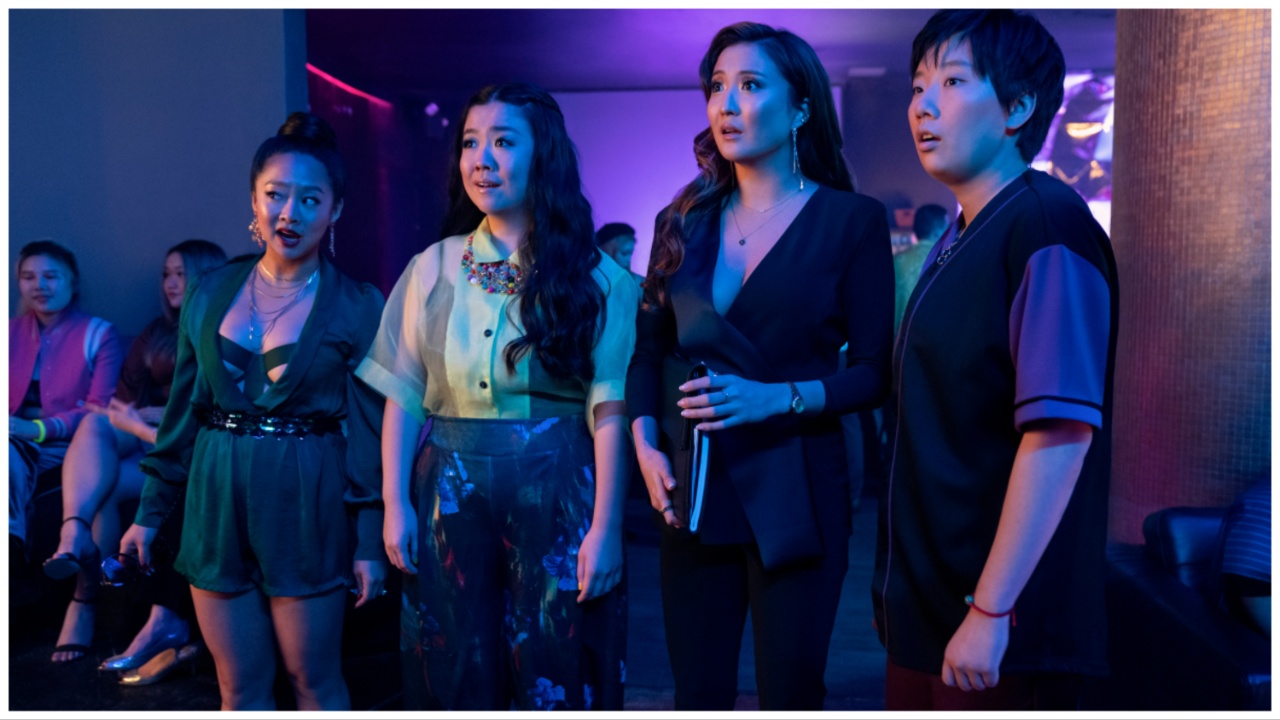The Problem With Calling ‘Joy Ride’ an ‘Asian Bridesmaids’

When Turning Red was first released at the beginning of 2022, it was met with a strange wave of criticism claiming it was too “unrelatable.” Many chalked this up to the fact that it centered on teen girls and their awkward feelings during puberty, which was certainly half of the equation. The other half was that many white critics couldn’t wrap their heads around the fact that kids of color go through different experiences growing up.
A similar thing is now happening with Joy Ride, Adele Lim’s directorial debut about four young Asian Americans who get down with their bad selves across China and Korea. Instead of judging the film on its own merits as a relatively new concept in Hollywood — an unabashedly slutty and insane film about Asian women, written with Asian women in mind — many have been making blanket comparisons between Joy Ride and Bridesmaids.
I guess this was predictable, unfortunately. It’s taken long enough for us to get to this point where we’re seeing so many movies about Asian Americans, for Asian Americans. And even now that we’re “here” (wherever “here” actually is), it’s not as though viewers have suddenly realized that stories about Asian Americans can be separate from white viewership and white sensibilities.
In fact, the opposite seems to be happening: many critics are lambasting the film in comparison to Bridesmaids. Some think it’s trying “too hard” to be Bridesmaids. Others think it’s not Bridesmaids-y enough and focuses too much on “the drama.” The drama in question is, of course, the struggles Audrey (Ashley Park) faces as an adopted child of white people. It’s worth mentioning here that these critics in question, just like the ones who had a bone to pick with Turning Red, are white men.
Listen. Joy Ride has a commonality with Bridesmaids in its depiction of women going off the rails and letting their most unhinged selves out. It also shares some Apatow/Feig alumni with producers Evan Goldberg and Seth Rogen. But that’s where the similarities end. Bridesmaids is about bridesmaids. Joy Ride is about three women and an enby person who travel across China on a business/soul-searching trip. It is insulting, reductive, and entirely lazy to just write this off as a Bridesmaids lookalike just because you’ve only rarely had to consider perspectives other than your own.
If you had to make a comparison, Joy Ride is more similar to Girls’ Trip in tone than Bridesmaids. But even then, it’s still more of its own movie. The “drama” of Audrey’s alienation and search for identity is entirely Asian American in nature and serves as the very crucial heart of the movie. The “hot eye-candy men” were entirely Asian (with the exception of NBA star Baron Davis), and Jesus H. Christ, they were cast well. And yes, while the jokes were cringy at times, they actually impressed me with how far they were willing to go. Bridesmaids was almost wholesome by comparison.
I gotta be honest, I’m getting really tired of white people continually insisting on prioritizing their opinions on this new wave of Asian American cinema. This film was made with Asian women in mind by Asian women. It was evident to me while watching it as an Asian woman, but would otherwise take a quick Google search to find out. How many times are we going to have to tell you people that Asians aren’t white? That they can’t be judged by those standards, nor compared by those standards, because we have our own experiences? By all means, cringe at the humor in this movie, and roll your eyes at it, but don’t you dare cut it down by pitting it against a film that never asked to be used as the “standard” in the first place.
(featured image: Lionsgate)
Have a tip we should know? [email protected]
